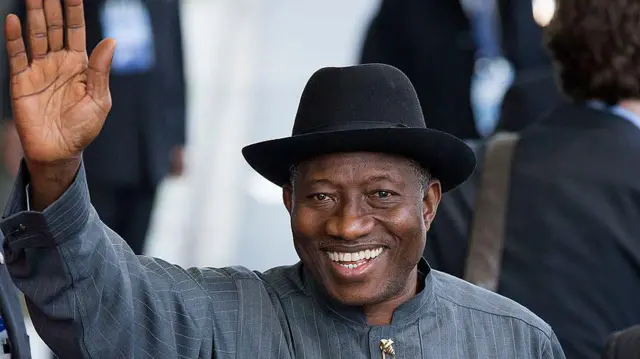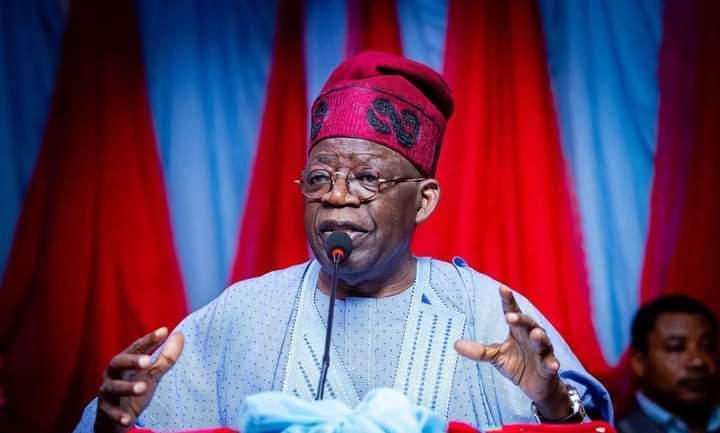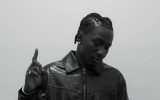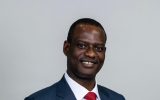by Tunde Fagbenle
Amongst the majority of the Yoruba, then and now, the image of Awo looms large; he is the most politically accomplished and revered Yoruba, perhaps second only to their mythical progenitor, Oduduwa himself.
I was in the primary school when the late Chief Obafemi Awolowo, more popularly known as AWO, was premier of Western Nigeria (1954-1959), but because I was born and grew up in the north, I (or more appropriately my father – since he paid my school fees) did not benefit from the acclaimed free education policy of Awo’s exemplary government.
But I, like all pupils my age, knew of Awo – Awo the man and Awo the myth! We marvelled as his helicopter hovered over Minna, spewing and spreading propaganda leaflets during his political campaign as Leader of the Opposition in the federal parliament (1959-63). We looked up into the sky atmoon-nights and truly believed we could see face-image on the moon that was of Awo.
Amongst the majority of the Yoruba, then and now, the image of Awo looms large; he is the most politically accomplished and revered Yoruba, perhaps second only to their mythical progenitor, Oduduwa himself.
Not without reason. Western Region (and the Yoruba) under his premiership witnessed spectacular abundance in quality infrastructure and unequalled human and economic development. Not only are some of the roads built in his time throughout the nooks and crannies of the region still standing, many even without a single touch since, the industrial and economic models he created are thriving legacies bequeathed to sadly visionless inheritors. The West recorded “First in Africa” in many spheres of development.
Not long ago something took me unto the Awo Foundation website, I was looking to quote Awo for an article. Lo and behold, the website opened with a whole load of memorable quotes from the sage garnered from his several published books, speeches, and lectures spanning over half a century of learning, reasoning, labouring, and manifesting. It is difficult to go through these words of the sage and not come to the conclusion that in mind development, in visionary leadership, in self-discipline, and in setting examples, there is none of his political peers, and sadly none of those that have followed, that came close to the man. He was deep.
The extracts that follow are only a handful of Awo’s memorable thoughts. They are inspiring, nay, awe-inspiring! Hope the leaders of today and the masses alike would reflect on “Awo’s wisdom.”
Awo On Self-Discipline: “I will, more than ever before, subject myself to severe self- discipline. Only men who are masters of themselves become easily masters of others. Therefore, my thoughts, my tongue, and my actions shall be brought under strict control always.” — My March Through Prison, 1985
Awo’s View of The World: “I must take the world as I find it: with its sprinkling of saints and its multitude of evil-doers… with its source of happiness and its tons of sorrow. My duty, therefore, is to view anything that may happen to me in this world with Christ-like calm and equanimity and to do all in my power to promote the progress and advancement of mankind.” — My March Through Prison, 1985
Awo On Good and Evil: “The touchstone of what is good, be it thought, or word or action, is LOVE. We are to love our neighbours as ourselves. That is the law and the prophets. Anything therefore – any thought or word or action – which falls short of LOVE is evil, and holds within itself the germ of its own eventual and inevitable destruction.” - Lecture at the University of Lagos (1968): In Voice of Courage (1981)
Awo On Development of Human Personality: “A man whose personality is fully developed never fears anything; he cringes not, and never feels inferior to anyone; His breadth of mind enables him to exercise his freedom in such a manner as not to endanger the interests and freedom of others. He is a citizen of the world — free from narrow prejudices. He is what he is because the three main constituents of his entity – his body, brain, and mind — are fully developed. Mens Sana in Corpore Sano!” — Voice of Reason (1981)
Awo on Power and How It Enslaves: “Power enslaves: absolute power enslaves absolutely. I have made a diligent search through history, and I have not come across a single instance where a regime, be it military or civilian, which has come to power at its own will, and has wielded that power for many years, has found it easy to extricate itself from the sweet uses and shackles of power, and then hand it to others outside its own hierarchy. It is possible, quite possible, that my search is not exhaustive and so, I stand to be corrected.” - University of Ife Convocation (1974): In Voice of Courage. 1981. (How I wish MKO Abiola read and was mindful of this, when he believed Abacha would stage a coup and hand it over to MKO on a platter – TF).
Awo on Self-Seeking African Leaders: “Africa has produced more self-seeking leaders than public-spirited ones. But, thank goodness, the masses of the people remain largely unspoilt and uncorrupted, and are developing fast the technique of differentiating gold from lead and real metal from dross. What is more, they have begun to show their preparedness for very rough action against any political leader who may be caught in the game of public trickery and fraud.” - The People’s Republic, 1968
Awo On People’s Revolt Against Bad Leadership: “A greedy, corrupt, and evil administration is bound to wither, sooner or later, in the face of obsessive desire and mounting clamour on the part of the masses of the people for a welfare regime which will benefit all equally. In the course of time there will be a clash of desires and wills between the exploiters and the exploited. These clash of desires and wills will stir the universal mind into action, and a situation will then arise which will bring about the termination of or radical change in the greedy, and evil regime.” - The People’s Republic, 1968
Awo on the Danger of Not Practising What We Preach: “If we are in the habit of practising the opposite of what we preach, our admonition will not only lose their force and cogency, but also we ourselves will forfeit every claim to credibility. An ounce of example, it has been widely said, is far better than a ton of precepts.” — Address to the Congregation of the University of Ife (1970): In Voice of Wisdom, 1981.
Awo on an Ijaw Presidency of Nigeria: “I look forward to the day – not in the far distant future – when an Ijaw would be President of our Republic, and a Birom his deputy or vice versa.” — Speech at the UPN’s First Campaign (1978): In Voice of Wisdom (1981) (And it came to pass! TF)
Awo on Federalism for Multi-National Country: “I predict that every multi-lingual or multi-national country with a unitary constitution must either eventually have a federal constitution based on the principles which I have enunciated, or disintegrate, or be perennially afflicted with disharmony and instability.” — The Peoples’ Republic, 1968.
Awo on Population As Basis Of Sharing Revenue: “In a country where the accuracy of the census figures is so much in acrimonious dispute, it is gross and aggravating provocation to urge that population should be used as a basis of sharing what belongs to others who are much fewer in number.” — The Strategy and Tactics of the People’s Republic of Nigeria, 1970
Awo’s Self-Assessment As A Leader: “While many men in power and public office are busy carousing in the midst of women of easy virtue and men of low morals, I, as a few others like me, am busy at my desk thinking about the problems of Nigeria and proffering solutions to them. Only the deep can call to the deep.”
————————-
Op-ed pieces and contributions are the opinions of the writers only and do not represent the opinions of Y!/YNaija.













